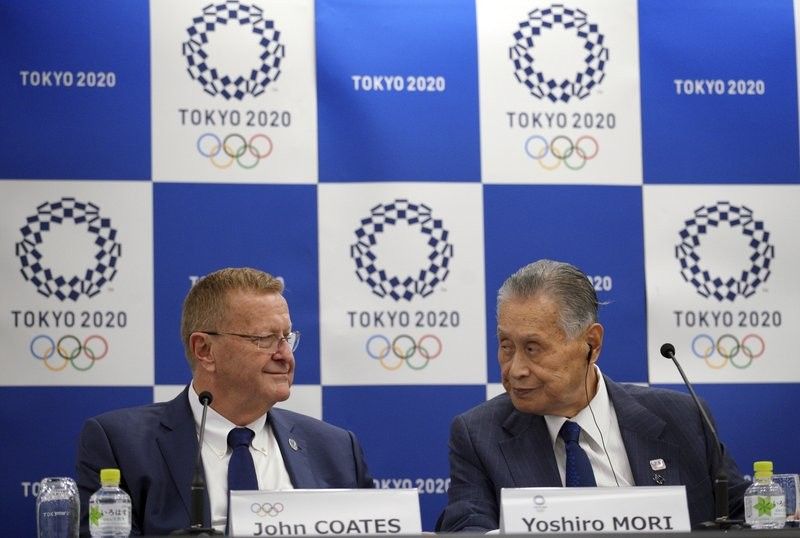Heat is on Tokyo 2020 organizers to combat high temperatures

TOKYO — The head of an IOC inspection team says organizers of the Tokyo 2020 Olympics will explore all options to combat the extreme summer heat that will likely prevail in the Japanese capital during the games.
John Coates was in Tokyo for a two-day inspection of the city’s preparations for the games which are just two years away.
The 2020 Olympics will run from July 24 to Aug. 9 when temperatures in central Tokyo can exceed 35 degrees Celsius (95 F). It’s common to see thousands of people rushed to hospitals with heatstroke during those months.
Experts have warned the risk of heatstroke in Tokyo has escalated in recent years, while noting the Olympics are expected to take place in conditions when sports activities should normally be halted.
“We are mindful that we do have to prepare for extreme heat,” Coates said at a news conference on Thursday. “You’re not the first country to host the games in extreme heat. It’s a natural consequence of being in July and August.”
Coates said each venue will have to be prepared to combat the heat.
“The effect of this is something that I was addressing when I went out and saw the rowing course,” Coates said. “It’s always the case with rowing that, because of winds, you might have a delay during the day and therefore we need to assure there is a large space for the athletes to rest in an air-conditioned area and that will happen.”
The Japanese government and the Tokyo metropolitan government are planning to lay pavements that emit less surface heat and plant taller roadside trees.
“The spectators as well as the athletes have to be taken care of,” Coates said. “The timing of the marathon and road walks will be as early as possible as they have been in previous games to beat the heat.”
Coates visited several venues during this visit and said work is largely on track.
He toured several venues and described them as “very impressive.” Among the venues visited were the new National Stadium in central Tokyo, as well as the badminton and equestrian venues.
Coates also visited the Sea Forest facilities, including the rowing and canoe sprint courses, calling progress “very good.”
Also on Thursday, organizers decided the torch relay will start in Fukushima, an area hit by the 2011 earthquake, tsunami and nuclear disaster.
The route was approved by the organizing committee at a meeting with the central and Tokyo governments on Thursday.
The relay will start on March 26, 2020 in Fukushima and will head southward to Okinawa before making its way north again and arriving in Tokyo on July 10.
Organizers want the 2020 Olympics to help showcase Japan’s recovery from the disaster that took more than 18,000 lives and triggered meltdowns at the Fukushima nuclear power plant.
The torch relay will visit all of Japan’s 47 prefectures and end on July 24, 2020, with the lighting of the Olympic cauldron during the Games’ opening ceremony at the National Stadium in Tokyo.
“For me it is very pleasing that the torch relay will be going to all of Japan’s prefectures, because we know the importance of taking the games to all of Japan,” Coates said.
- Latest
- Trending



























